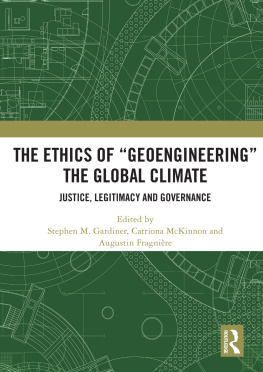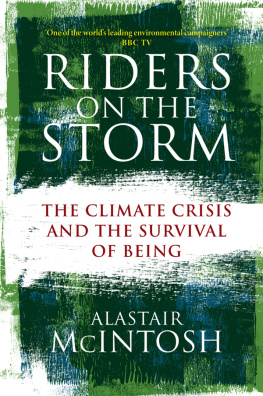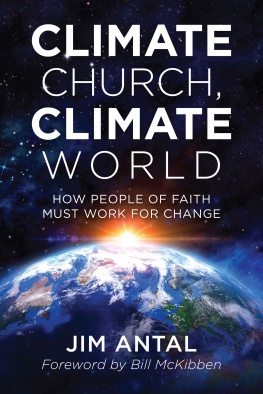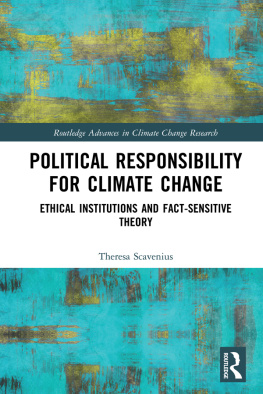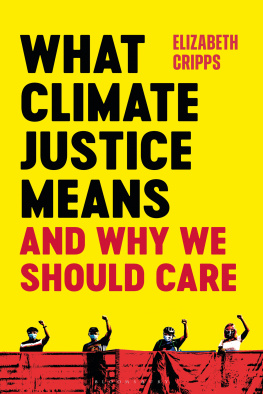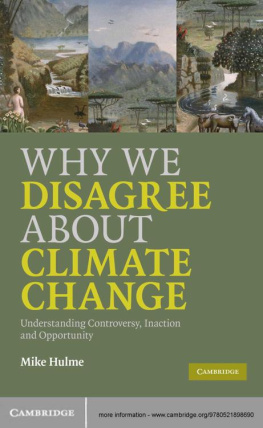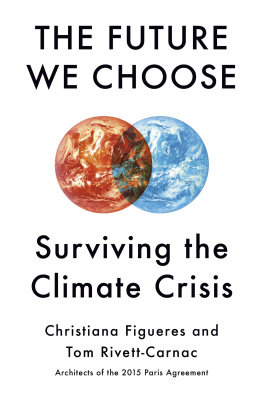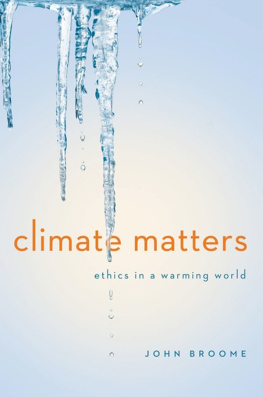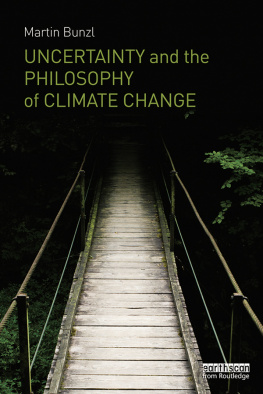A PERFECT MORAL STORM
ENVIRONMENTAL ETHICS AND SCIENCE POLICY SERIES
General Editor: Kristin Shrader-Frechette
Democracy, Risk, and Community
Technological Hazards and the Evolution of Liberalism
Richard P. Hiskes
Environmental Justice
Creating Equality, Reclaiming Democracy
Kristin Shrader-Frechette
Across the Boundaries
Extrapolation in Biology and Social Science
Daniel Steel
Is a Little Pollution Good For You?
Incorporating Societal Values in Environmental Research
Kevin C. Elliott
A Perfect Moral Storm
The Ethical Tragedy of Climate Change
Stephen M. Gardiner
A PERFECT MORAL STORM
The Ethical Tragedy of Climate Change
STEPHEN M. GARDINER


Oxford University Press, Inc., publishes works that further
Oxford Universitys objective of excellence
in research, scholarship, and education.
Oxford New York
Auckland Cape Town Dar es Salaam Hong Kong Karachi
Kuala Lumpur Madrid Melbourne Mexico City Nairobi
New Delhi Shanghai Taipei Toronto
With offices in
Argentina Austria Brazil Chile Czech Republic France Greece
Guatemala Hungary Italy Japan Poland Portugal Singapore
South Korea Switzerland Thailand Turkey Ukraine Vietnam
Copyright 2011 by Oxford University Press, Inc.
Published by Oxford University Press, Inc.
198 Madison Avenue, New York, New York 10016
www.oup.com
Oxford is a registered trademark of Oxford University Press
All rights reserved. No part of this publication may be reproduced,
stored in a retrieval system, or transmitted, in any form or by any means,
electronic, mechanical, photocopying, recording, or otherwise,
without the prior permission of Oxford University Press.
Gardiner, Stephen Mark.
A perfect moral storm : the ethical tragedy of climate
change / Stephen M. Gardiner.
p. cm. (Environmental ethics and science policy series)
ISBN 978-0-19-537944-0 (alk. paper)
1. Environmental ethics. 2. Global warmingMoral and ethical aspects.
3. Climatic changesMoral and ethical aspects. 4. Environmental responsibility. I. Title.
GE42.G37 2011
179.1dc22
2010030958
1 3 5 7 9 8 6 4 2
Printed in the United States of America
on acid-free paper
For
Lynn, Ben and Matthew,
Safe Harbor in a Storm
Contents
Those of us working on global ethics and political philosophy tend to think about grand theories of justice and rights, trying to figure out which are the best, how they apply to the world that we live in, and how they might guide us in making it better. However, this is not that kind of book. Instead, my aim is to characterize our predicamenthumanitys and especially that of richer nations and peoples. This seems to me where the action is right now. We need to understand what the problem is that we are trying to solve, and why it is so persistent. Until we do, attempts at solutions are likely to be shallow.
In the hope of piquing your interest, let me gesture at the main claims of the book by announcing eight propositions.
PROPOSITION 1: RUNAWAY EMISSIONS
We are currently accelerating hard into the most serious global environmental problem that humanity has ever faced. If the scientists are to be believed, the planet is at serious risk of a shift in global climate comparable in magnitude to an ice age (albeit in the other direction), but occurring over decades rather than millennia. Yet, despite more than twenty years of awareness, we are neither slowing down nor stabilizing, let alone actually reducing, our collective input to the problem. Instead, we continue to add more fuel to the fire, faster and faster, producing an almost exponential rise in anthropogenic emissions of carbon. This, arguably, is the most striking fact of our time.
PROPOSITION 2: A DUBIOUS FRAMING
In public discussion, we do not understand the striking fact in the most relevant terms, and so conceive of the problem in the wrong way. The dominant discourses about the nature of the climate threat are scientific and economic. But the deepest challenge is ethical. What matters most is what we do to protect those vulnerable to our actions and unable to hold us accountable, especially the global poor, future generations, and nonhuman nature.
PROPOSITION 3: A PROFOUND CHALLENGE
Our problem is profoundly global, intergenerational, and theoretical. When these factors come together they pose a perfect moral storm for ethical action. This casts doubt on the adequacy of our existing institutions, and our moral and political theories.
PROPOSITION 4: A PROBLEMATIC PARADIGM
In the environmental discourse, the presence of the perfect moral storm is obscured by the dominance and pervasiveness of an alternative, narrower analysis. According to this account, climate change is a paradigmatically global problem best understood as a prisoners dilemma or tragedy of the commons played out between nation states who adequately represent the interests of their citizens in perpetuity. However, such models assume away many of the main issues, and especially the intergenerational aspect of the climate problem. Hence, they are inadequate in this case, and perhaps many others. This point has theoretical as well as practical implications.
PROPOSITION 5: A THREATENED DISCOURSE
In the perfect moral storm, our position is not that of idealized neutral observers, but rather judges in our own case, with no one to properly hold us accountable. This makes it all too easy to slip into weak and self-serving ways of thinking, supported by a convenient apathy or ideological fervor. Moreover, the devices of such corruption are sophisticated, and often function indirectly, by infiltrating the terms of ethical and epistemic argument.
PROPOSITION 6: SHADOW SOLUTIONS
Given this, we are susceptible to proposals for action that do not respond to the real problem. This provides a good explanation of what has gone wrong in the last two decades of climate policy, from Rio to Kyoto to Copenhagen. However, the form of such shadow solutions is likely to evolve as the situation deteriorates. Some recent arguments for pursuing geoengineering may represent such an evolution.
PROPOSITION 7: A DEFENSIVE STRATEGY
The perfect storm constitutes a nonneutral evaluative setting, and this poses special challenges for ethical action. Because we are judges in our own case, there is a role for defensive moral and political philosophy, especially in the public sphere. In particular, we should work as hard at identifying bad arguments, policies, and theories as on developing the good; and we must pay attention to the ways important values are articulated, since the likelihood of their perversion is high.
PROPOSITION 8: EARLY GUIDANCE
Although the theoretical component of the perfect moral storm is serious, it does not follow that nothing useful can be said about confronting the ethical challenge. Instead, there are serious constraints on moral and political reasoning involving many of the main aspects of the climate problem, such as scientific uncertainty, intergenerational ethics, and intragenerational justice. Paying attention to these suggests that the current public debate about climate should be reoriented.
Next page

